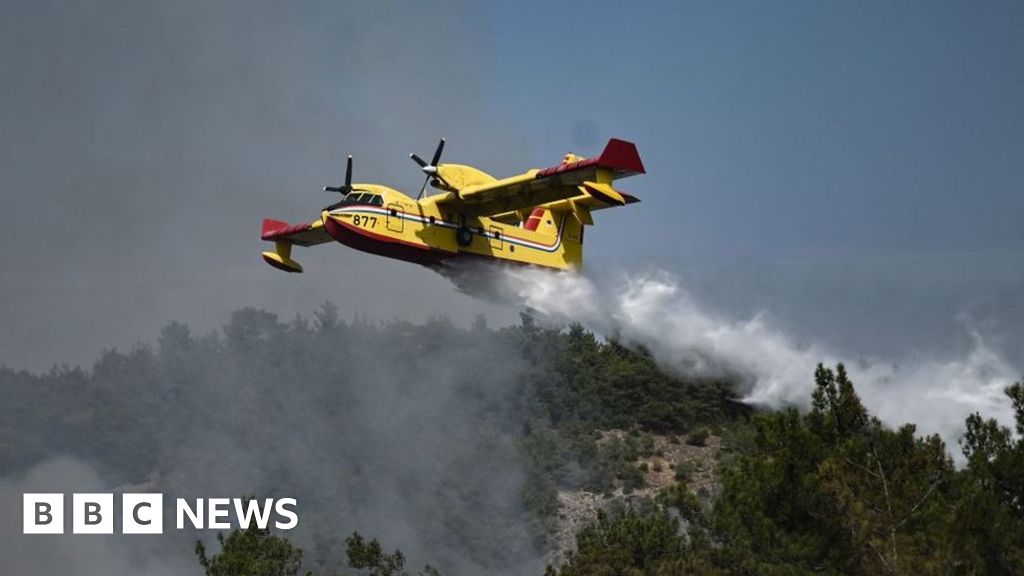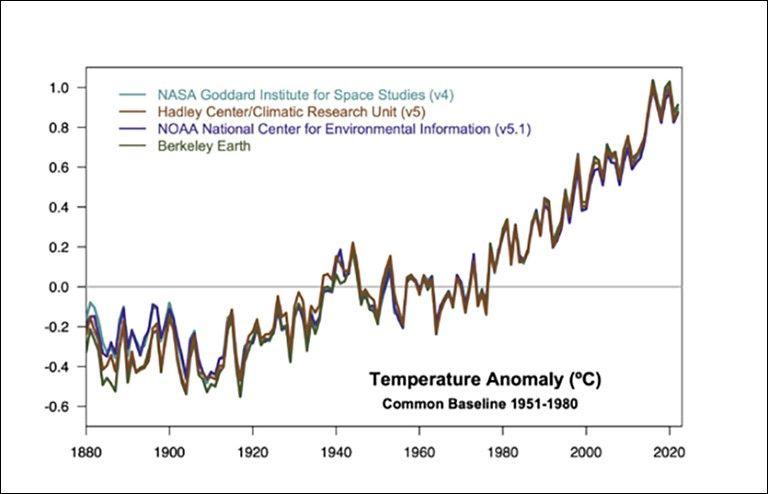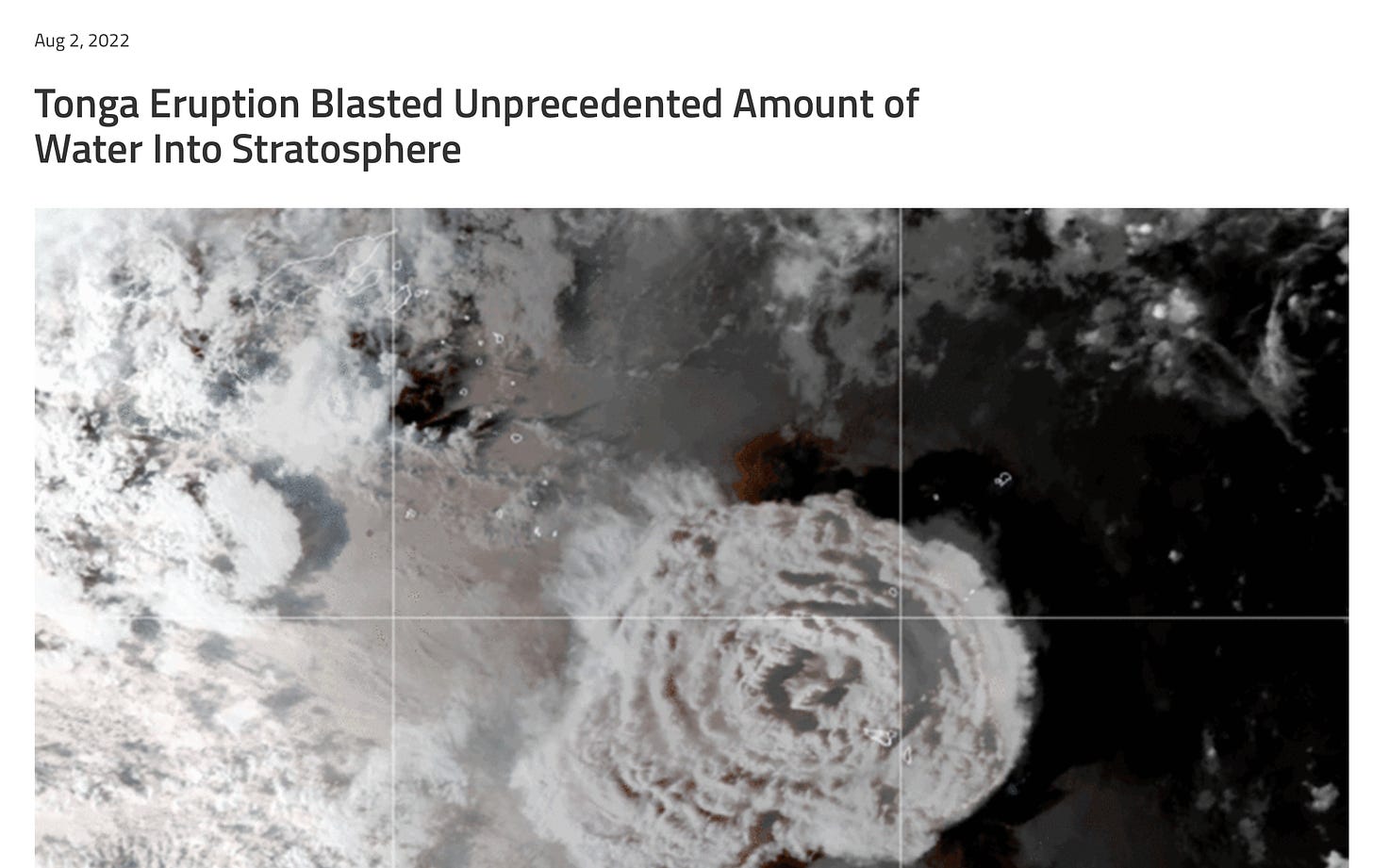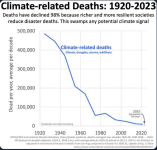It’s important to remember that scientists always focus on the evidence, not on opinions. Scientific evidence continues to show that human activities

climate.nasa.gov
Climate change means long-term shifts in weather patterns. More heat less heat more rain less rain - more snow less snow has to do with the weather which is the result of changes in the climate.
climate is always changing and has nothing to do with carbon, God didn't make a mistake
If the scientists are wrong and there is no climate changes occurring no need to worry, why even focus on what One believes is not occurring. Time will tell
canada has a .61cent a litre fuel carbon tax or $2.31a gallon to fight change.
.............................................
.https://www.coffeeandcovid.com/p/seamen-friday-june-23-2023-c-and?utm_source=profile&utm_medium=reader2
ocean warming not due to atmospheric co2
Even a single degree over the average temperature is statistically significant, as is a one-third degree increase, because of the fact there is SO much water in the oceans. It takes a truly enormous amount of energy to heat it all up. An unimaginable amount of energy.
Especially if you’re talking about heating all that water up QUICKLY.
Ethical’s theory is the only current explanation that makes sense. The only way to generate all that energy is with something like magma or water superheated by molten rock pouring into the ocean somewhere.
Imagine LOTS of new undersea volcanoes. That could do it.
And as it happens, we are also seeing hot spots — places in the oceans where temperatures range much higher than one degree — which would be consistent with giant superheated vents, undersea volcanoes, or magma leaks. The hot spots might be located above these areas where super-hot water is gushing into the oceans.
Hot spots are also inconsistent with global warming, for obvious reasons.
According to the Times’ June 1st op-ed, the distribution of heat is very inconsistent. In April there were some huge areas of the world’s oceans that were as much as two degrees over the 1971-2000 average. In other places off the Pacific coast of South America, it shot up as much as FIVE degrees. And sea-surface temperatures in spots off the Atlantic coast of North America — the places they are saying are “on fire” — registered almost FOURTEEN degrees above the 1971-2011 average.
Heating that much water by fourteen degrees requires a literally unimaginable amount of energy. Hence the scientists’ recourse to using billions of nuclear bombs to illustrate the situation.
................................
.https://www.coffeeandcovid.com/p/overheated-friday-july-28-2023-c
Ready to learn something? Let’s meet the historic, record-shattering Hunga Tonga volcanic eruption of 2022, which I bet you never heard of. Back in January 2022, you were probably distracted by covid mandates or maybe by Biden calling himself “Senator” again. The short version is an underwater Pacific Ocean volcano named Hunga Tonga-Hunga Ha’apai, 490 feet under the waves, massively erupted, bigger than any other modern eruption, even bigger than Mount Pinatubo.
You never heard about it since it was underwater and nobody died. But the erupting lava instantly vaporized fantastic, unimaginable amounts of sea water, which billowed into the atmosphere, changing the water composition of Earth’s atmosphere and heating it up
for years. In only a few days, the superheated water from the Hunga Tonga eruption blanketed the globe, pole to pole, East to West.
The eruption was so big it could be clearly seen from space.
...
Over the next year it would turn out that NASA badly underestimated the amount of water Hunga Tonga vaporized into the atmosphere. Current estimates are three times higher than the original: scientists now think it was closer to 150,000 metric tons, or 40 trillion gallons, of super-heated water instantly injected into the atmosphere. Talk about a greenhouse. Water vapor — humidity — is a much more effective greenhouse gas than carbon dioxide.














